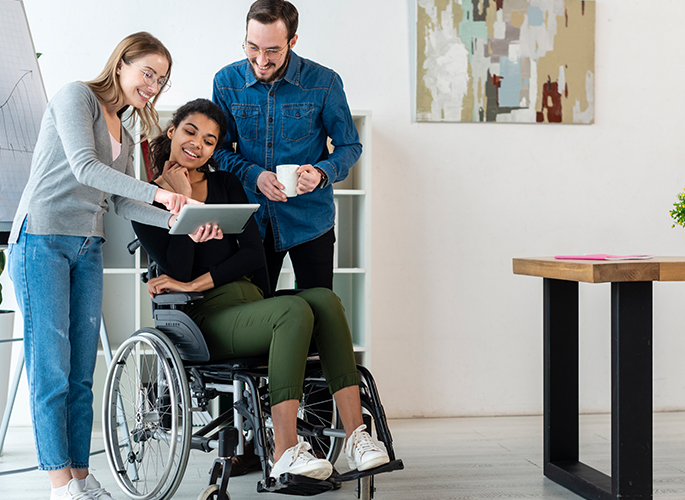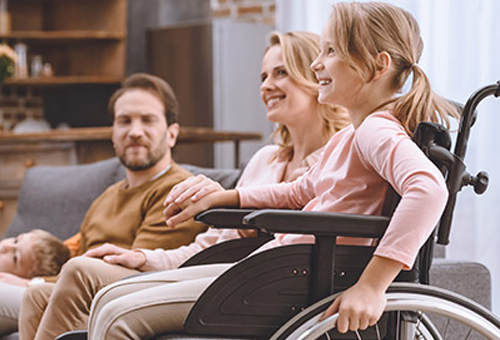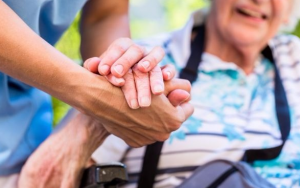Why your care plan should start with a trusted Disability Services Provider
Why your care plan should start with a trusted Disability Services Provider
Blog Article
The Crucial Link In Between Handicap Providers and Effective Home Care Solutions
The relationship between handicap services and home care services is essential for enhancing the lives of individuals with handicaps. Special needs solutions give essential sources and support. Home care solutions use individualized help in acquainted environments. This collaboration advertises independence and social addition. The specifics of just how these components interact continue to be intricate. Recognizing this link can reveal brand-new insights into boosting care for those in demand. What are the ramifications for individuals and caretakers alike?
Comprehending Special Needs Providers: An Introduction
While several people might not completely realize the intricacies of impairment solutions, understanding their scope and significance is crucial for cultivating inclusivity. Disability services incorporate a wide variety of assistance devices created to aid individuals with physical, intellectual, or developing specials needs. These services aim to enhance the lifestyle, advertising independence and involvement in culture. They include educational programs, employment assistance, transport aid, and healthcare solutions customized to specific needs.Furthermore, these services often involve partnership among different stakeholders, consisting of government firms, non-profit companies, and community teams. This collaborative strategy warranties that people receive thorough support that addresses their one-of-a-kind difficulties. Understanding of special needs solutions is critical, as it motivates social acceptance and the removal of preconception. By recognizing the importance of these solutions, communities can produce a much more comprehensive atmosphere, inevitably benefiting everyone and promoting equal possibilities for individuals with handicaps.
The Role of Home Care in Supporting People With Disabilities
Home treatment plays an important function in enhancing the lives of people with specials needs by giving personalized support in familiar settings. This kind of treatment enables individuals to keep their self-reliance while getting aid tailored to their details requirements. Caretakers not only offer physical assistance, such as assist with day-to-day tasks like bathing and meal prep work, but additionally give emotional motivation and companionship.In addition to functional assistance, home treatment solutions facilitate social interaction, which is basic for mental wellness. By involving people in neighborhood activities or facilitating interaction with friends and family, caregivers aid combat sensations of seclusion. Home care likewise minimizes the concern on family members, permitting them to concentrate on their own obligations while ensuring their enjoyed ones obtain ample care (Ndis Providers Sydney). Inevitably, home treatment acts as a substantial support system, empowering people with disabilities to thrive within their own homes
Tailored Treatment Strategies: Meeting One-of-a-kind Demands
Customized care plans are essential for successfully dealing with the distinct needs of individuals with handicaps. These plans are developed to give customized support, taking into consideration the details difficulties and preferences of each individual. By conducting detailed analyses, treatment suppliers can determine staminas and areas calling for aid, making certain that care is both effective.incorporating and relevant input from the private and their household participants fosters a collective strategy, enhancing involvement and complete satisfaction. Tailored treatment plans may include numerous solutions, such as physical therapy, work therapy, and individual care help, all targeted at promoting total wellness. Normal evaluations of these care strategies are necessary to adjust to changing situations and requirements. This versatility enables for prompt modifications, ensuring that individuals obtain perfect assistance throughout their lives. Ultimately, tailored care strategies offer as a structure for supplying quality care that respects the dignity and originality of everyone.
Enhancing Self-reliance Via Disability Providers
Equipping people with disabilities to achieve better independence is a primary objective of handicap services. These solutions supply crucial sources that assist in self-sufficiency and boost the high quality of life for those affected. By providing personalized assistance, such as flexibility training, flexible innovations, and life abilities development, handicap services allow individuals to browse daily challenges more effectively.Access to community-based programs and social inclusion efforts better promotes freedom. With these chances, people can involve in significant tasks, construct connections, and establish a sense of belonging. Furthermore, information and reference solutions help attach individuals to important sources, guaranteeing they receive the support needed to thrive.Ultimately, boosting freedom with handicap services not only advantages individuals yet additionally advertises a much more inclusive culture. By damaging down obstacles and encouraging self-advocacy, these solutions equip people to lead meeting lives, adding to their communities in useful methods.
The Importance of Training for Caretakers
Educating for caretakers is essential for establishing necessary skills that straight influence the high quality of care provided to people with impairments. By boosting their expertise and capabilities, caregivers can cultivate thoughtful relationships that promote count on and understanding. This focus on training not only boosts solution shipment however additionally enhances the general caregiving experience.
Crucial Skill Growth
Skill growth is important for caretakers in the special needs services and home care fields. Appropriate training outfits caretakers with the basic abilities needed to supply efficient assistance and assistance to people with disabilities. This consists of understanding particular medical needs, reliable communication methods, and the capability to reply to various behavioral challenges. In addition, ability advancement boosts caregivers' capacity to promote independence in clients, ensuring they can do day-to-day activities with self-respect. Continuous training likewise promotes confidence and task complete satisfaction amongst caregivers, lowering turnover prices in the market. By focusing on skill development, companies can assure that caregivers are well-prepared to meet the diverse requirements of those they offer, eventually adding to a much more reliable and compassionate treatment setting.
Enhancing Care High Quality
Raising the top quality of take care of individuals with impairments rests on the detailed training given to caretakers. Well-trained caretakers possess important knowledge and abilities called for to address the unique requirements of their clients efficiently. Extensive training programs include various elements, such as understanding disability-specific difficulties, efficient interaction methods, and safety methods. In addition, continuous education guarantees that caregivers remain updated on finest practices and emerging innovations in home treatment - Disability Services. This dedication to training not just improves solution delivery but also cultivates a sense of confidence amongst caregivers, which equates right into improved treatment top quality. Ultimately, purchasing caretaker training is important for creating an atmosphere where individuals with specials needs receive the conscientious, respectful, and effective treatment they are worthy of
Structure Compassionate Relationships

Building an Encouraging Setting at Home

Accessible Home Alterations
Many individuals with handicaps deal with substantial obstacles in maneuvering their home atmospheres, making obtainable home adjustments essential for promoting freedom and safety. These adjustments can include installing ramps, broadening doorways, and producing barrier-free washrooms, thereby enabling simpler access throughout the home. Additionally, adding grab bars and non-slip surface areas can considerably decrease the threat of drops, advertising a much more safe and secure space. Elevators or stairlifts may also be needed for multi-level homes, guaranteeing that all locations are obtainable. By carrying out these adjustments, caregivers can assist create an atmosphere where people can browse their spaces with self-confidence. Inevitably, easily accessible home alterations play an essential role in improving the quality of life for those with handicaps, permitting them to thrive in their own homes.
Personalized Treatment Program
Accessible home modifications prepared for a setting where people with impairments can flourish, yet tailored assistance is just as vital. Personalized care strategies play a necessary role in dealing with the unique needs of each person. These plans are developed through comprehensive assessments that consider clinical needs, personal preferences, and everyday regimens. By focusing on specific staminas and challenges, caregivers can create methods that promote independence and enhance quality of life. Routine evaluations ensure that care plans stay effective and pertinent, enabling for adjustments as requirements transform in time. This personalized strategy not just enhances the experience of those getting care but likewise advertises a feeling of freedom, ultimately adding to a much more encouraging and equipping home setting.
Family Involvement Strategies
Family involvement is necessary in developing a supportive environment for individuals with specials needs at home. Involving household members in care techniques fosters a sense of belonging and security. Effective interaction is critical; normal family members conferences can assist in discussions concerning the person's choices and needs. In addition, educating family participants about the particular handicaps can enhance understanding and empathy, resulting in much better support. Urging involvement in day-to-day tasks not just strengthens relationships but additionally promotes self-reliance for the individual. It is crucial for families to team up with disability provider to produce natural treatment plans. By actively involving member of the family, a nurturing environment is grown, ultimately enhancing the high quality of life for those with specials needs.
Determining the Impact of Integrated Care Solutions
The effectiveness of integrated care remedies can significantly affect the top quality of life for individuals with specials needs. Determining this effect requires a diverse method that incorporates different metrics, including wellness results, individual satisfaction, and cost-effectiveness. Health and wellness outcomes can be evaluated by tracking enhancements in wheelchair, mental health, and general well-being, supplying concrete evidence of care efficiency. like it User satisfaction surveys can catch the experiences of individuals and their family members, using understandings into the perceived top quality of treatment obtained. Furthermore, assessing cost-effectiveness assists to assure that resources are being used successfully, enabling lasting treatment versions. By using these dimension methods, stakeholders can get an extensive understanding of how integrated care options favorably influence individuals with handicaps. Eventually, this data not only aids in refining existing services but likewise educates future plan decisions, guaranteeing that care remains aligned with the developing demands of this populace.
Frequently Asked Inquiries
How Can Families Promote for Better Special Needs Solutions and Home Treatment?
Family members can promote for boosted handicap services and home care by looking into resources, attending community conferences, engaging with neighborhood agents, sharing individual experiences, creating support system, and working together with organizations devoted to disability civil liberties and care improvements.
What Prevail Misconceptions Regarding Impairment Providers and Home Care?

Are There Financial Aid Options for Impairment Services and Home Treatment?
Economic aid alternatives for handicap solutions and home treatment include government programs, grants, and insurance policy coverage. Resources vary by area, calling for people to study neighborhood companies and organizations that provide financial support customized to their needs.
Just How Can Modern Technology Improve Home Look After People With Disabilities?
Innovation can enhance home care for people with specials needs by supplying assistive devices, telehealth solutions, and keeping an eye on systems. These advancements enhance availability, advertise independence, and enable caretakers to react better to the needs of their customers.
What Resources Are Available for Caretakers of People With Disabilities?
Various sources exist for caretakers of individuals look what i found with disabilities, including entitlement program programs, support teams, academic workshops, on the internet forums, and specialized training. These sources intend to enhance caretakers' abilities and supply emotional and sensible support. The relationship between handicap services and home treatment options is essential for enhancing the lives of individuals with impairments. Home treatment additionally reduces the problem on household members, allowing them to concentrate on their own obligations while ensuring their loved ones receive appropriate treatment. By performing thorough analyses, care carriers can determine staminas and locations requiring assistance, ensuring that treatment is both effective.incorporating and relevant input from the specific and their family participants cultivates a joint approach, improving involvement and satisfaction. Tailored care plans may include numerous solutions, such as physical treatment, occupational therapy, and individual care support, all intended at advertising total health. Technology can boost home treatment for individuals with impairments by giving assistive gadgets, telehealth services, and keeping track of systems.
Report this page